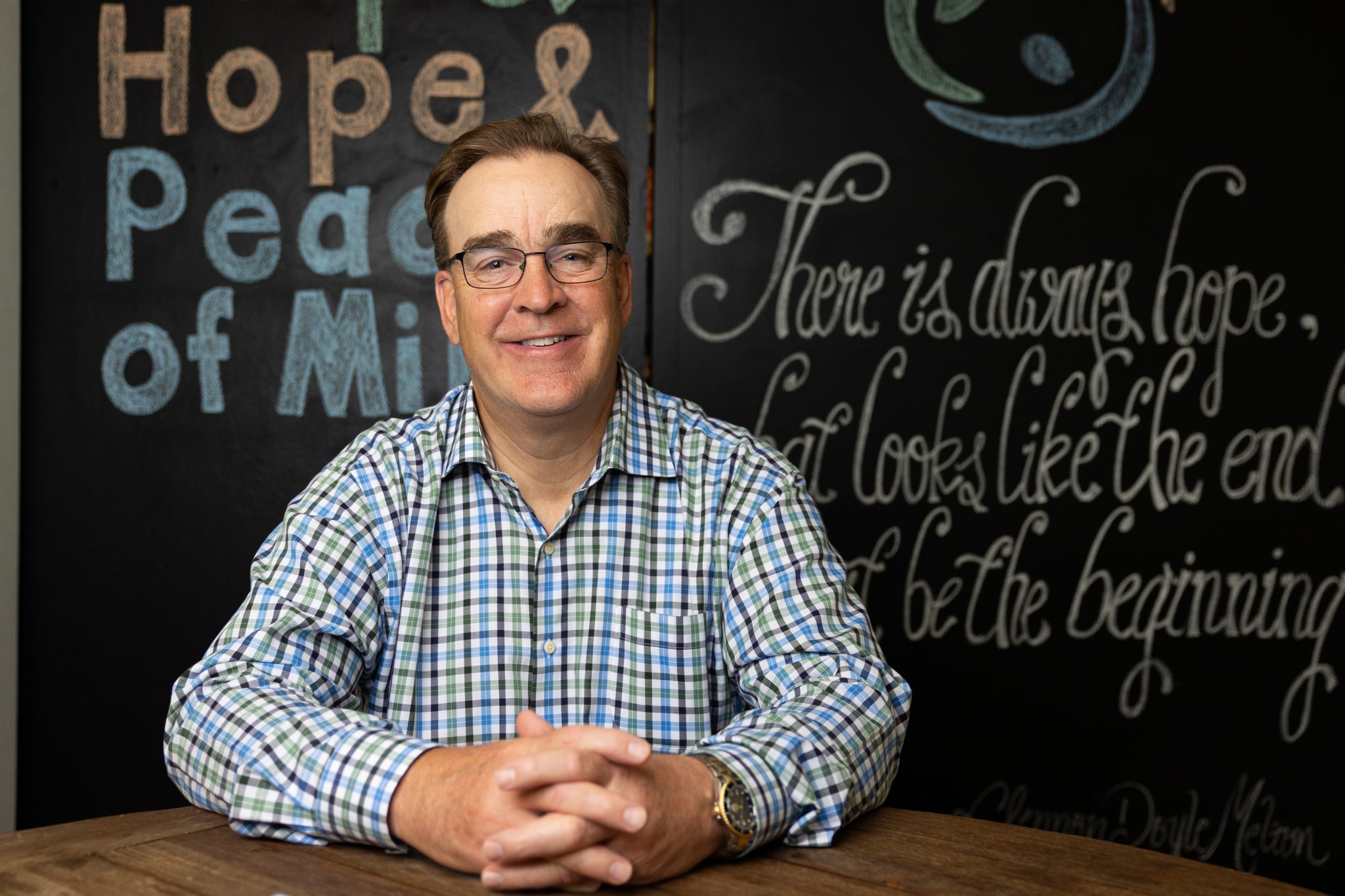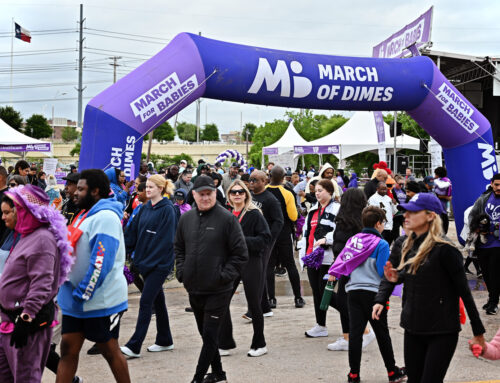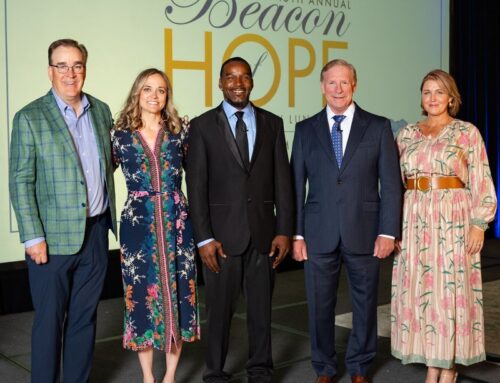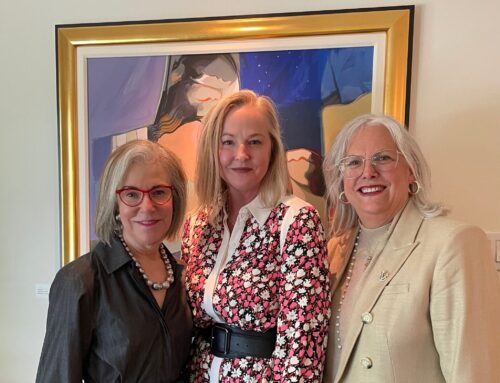
Photography by Gabriel Cano
For a while, Kevin Hall had been thinking about leaving his 30-year career in advertising for the nonprofit sector. After a year, he landed on a position that seemed like a good fit. He was pretty confident he was going to receive an offer, and he was going to accept it.
Around that time, he was eating lunch with Vanita Halliburton, the co-founder and executive chairperson of the Grant Halliburton Foundation. Halliburton started the organization after her son Grant died by suicide at age 19 after experiencing depression and bipolar disorder. She and Hall knew each other, since he was a foundation board member. He began explaining his news to her.
Halliburton was surprised to learn Hall wanted to work for a nonprofit. She asked him 20 questions, though Hall wasn’t sure why. And then it clicked.
Halliburton revealed she had been quietly searching for someone who could take over the day-to-day operations of her foundation. And until that lunch with Hall, she’d been unsuccessful.
“You’re it. You’re the guy,” Halliburton told him.
After that, Hall went to his boss at Integer, where he’d worked for a decade, gave his two weeks’ notice, and became president of the Grant Halliburton Foundation, which raises awareness for adolescent mental health and provides education and other resources to schools and faith communities regarding adolescent mental health.
Now, our neighbor spends most of his time networking and fundraising. Before he heads to the office, he completes his morning routine: walking Nasher, the family dog, around their neighborhood near Preston Road and Royal Lane, making breakfast and checking his email.
During whatever time is leftover, often on the weekends, Hall plays golf at Royal Oaks Country Club, sometimes with a rotating group of friends, and sometimes with his wife, Sharon, and other couples. Golf has been Hall’s hobby since he was 10, when he hit his first ball at the Village Golf Club. Since then, his golf journey has taken him to SMU, where he walked on to the golf team on which Payne Stewart was a member, and to Golfweek magazine, where he’s a course rater. His favorite golf course is Spyglass Hill in Pebble Beach, but his favorite golf memory is the time he birdied seven consecutive holes at Prestonwood Country Club, enough to qualify for the Texas Amateur Championship at Royal Oaks, where his son, Will, caddied for him.
“You just have that moment,” Hall says. “And I can’t, to this day, I can’t even fathom how that happened, but it just did.”
Hall says he’s always been “a relationship person.” He understands the value of friendships, and that’s been an asset to his role as president. So has his salesmanship and his willingness to ask anyone to support the foundation.
“The joke is, if you want to play golf with Kevin, it’s going to cost you 1,000 bucks,” he says.
The Grant Halliburton Foundation, which is celebrating its 15-year anniversary, wasn’t Hall’s entrance into the world of nonprofits. Nor was it the first time he witnessed the power of philanthropy, which he defines as giving back to help others, in any way possible.
Before Hall started at Integer, he worked at an ad agency called Temerlin McClain. The company’s founder, Liener Temerlin, encouraged employees to engage in philanthropy. Somehow, Hall ended up as the company’s volunteer-group organizer who adopted a school in Irving. He became a student lunch buddy and would eat lunch with him once a week in the cafeteria. After a few meetings, Hall felt he wasn’t connecting with the boy. But then he received a call from the principal.
“Kevin, I don’t know what you did, but he’s a whole new kid,” Hall remembers the principal saying. “He’s happy. He’s outgoing. He’s applying himself.”
Hall couldn’t believe it. He didn’t think he had done anything.
“Oh yes, you have,” the principal continued. “You’ve basically shown this kid that somebody cares about him, and that’s all he needed.”
It was from that experience, over a year of lunches with the student, that Hall learned a small effort could make a significant impact.
Looking forward, he wants to continue growing the foundation and its programs strategically. He and the staff will keep searching for new partnerships with organizations that can contribute specific resources and expertise as a part of the foundation’s Thrive strategy, which provides programs related to adolescent mental health.
“It is something that is out there, but it is very treatable,” he says of the mental health crisis among young people. “And we can absolutely help people understand how to help, whether it’s themselves or others. We have a lot of work to do. We have a lot of work to do around mental health, and that’s what we’re here to do.”






